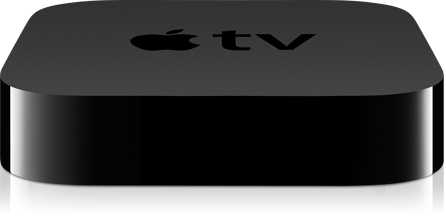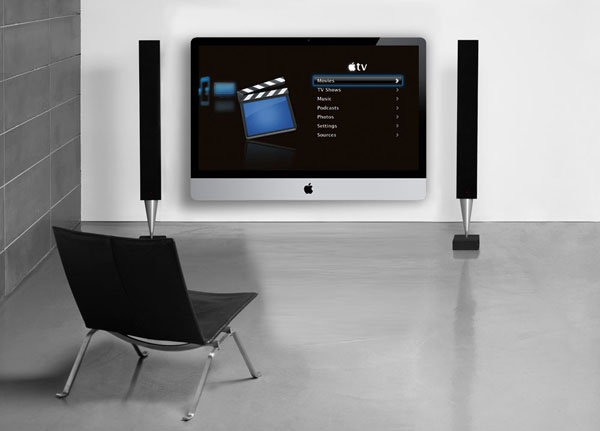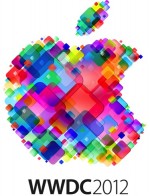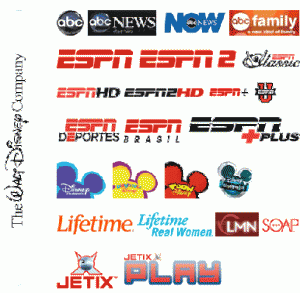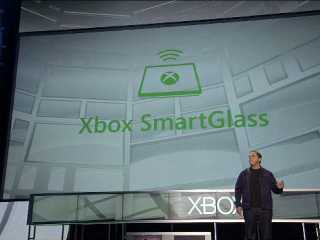
This is about as controversial as I get…
There’s been a great deal of speculation over the ‘future of TV’ and the ‘future of the internet’ or the ‘future of the internet and TV’ I went looking for some blog posts on this and the theories are both wide in their variance and numerous in count, but none of them quite capture what I believe to be one obvious theory on what TV will look like in only a short time from now.
What do others think?
Its funny to me that many “experts” try to use year-old statistics about cable or broadcast TV as proof those things will be the same in ten years. I’ve read lots of blog posts and I’ve heard people say things about how cable/broadcast TV is still the primary medium by which people get their news and how TV sales have increased over 2009. (which is a DUH by the way – I don’t know if these same people heard about a certain digital conversion that took place in 2009) TV network execs like to make a very cyclical argument that in short says “we already exist, so we’ll continue to exist – online TV basically doesn’t exist so it will never exist.” In other words they think they are ‘too big to fail’ and that internet-based video cannot compete with cable or broadcast. (Sounds similar to the record industry in 1999) One very experienced media professional actually simply said to me “The internet is a terrible delivery system for video” Its clear to me that in general, today’s TV professionals have no idea what’s coming. First off TV sales won’t stop the Internet from being the delivery medium. Second off when those ‘experts’ say “Internet” they’re thinking ‘search engines,’ ‘computer,’ and ‘browser’ – these words aren’t in the vocabulary of what internet-delivered TV will look like in the future.
So they’re just going to merge together right?
Well let me start off by saying that I heard someone say recently “these two are just going to keep growing together” which sounds like a simple answer that most people would probably agree with. This answer is totally correct in one way and totally incorrect in another way.
- I believe that it is correct in that to the end user, the effect will still be that you sit down on a couch, Turn on your TV and be able to choose the programming in a similar fashion that you might to a DVR or a Video-on-demand service. It’ll still be on your TV.
- I think that it is incorrect in thinking because the effect for the content producer and network execs will be totally different since it will no longer be sent over a cable TV service
…yeah so here’s where some people just aren’t going to believe me. Cable as you know it may no longer exist – possibly within your lifetime. Sorry to drop a bomb on you like that, but that’s it. I don’t make the rules. Do I think that the computer will just replace the TV? No. Do I expect that people are going to start hooking up their TVs to their computers every night to watch the overpriced movies on iTunes? No. Do I believe live television will cease to exist? No. Do I believe 24-hour TV stations will cease to exist entirely? Doubtful, though possible.
So what will TV to become?
I think in ten years you’re going buy a TV with an operating system on it with a GUI similar to Apple’s “Front Row”, Hulu’s “Hulu Desktop” or Microsoft’s Xbox 360 “360 Experience”. The TV will have a small solid-state hard drive on it, which will allow you to download ‘apps’ much like the ones everyone’s so crazy about on their phones right now. These apps might serve functions ranging from playing games to telling you the weather or helping your kid with their algebra homework. Many of these apps will simply be TV Channels. You’ll download only the channels you want – some of them will be ad supported – others will cost a premium. Some will be available for individual download – others I suspect will still be packaged together.
At the forefront of all these apps will be your queue – anytime that a new episode of the shows that you subscribe to comes up, it goes into your queue. So you sit down on your couch and turn on your TV – if you turned it off in the middle of something it’ll start playing that again as if it had just been paused. You may think that sounds just like DVR – well it does, but there’s more to it. You see, instead of receiving a stream of channels over digital cable, you’ll get it over cable-based Internet. And instead of storing that episode on a hard drive in a set-top box, you’re streaming from an online service. I do think that live events will still stream live over their respective channels- though I imagine that they will likely still be available at our convenience for a period afterwards. When you finish one Item in your queue, your TV will advance right on to the next unwatched item and so on, and so fourth. If you don’t have anything in your queue it’ll most likely select something else similar to what you’ve already watched, so in the end the effect is still the same: you can sit and aimlessly watch TV all day long. Don’t worry, there was never any chance that was no longer going to be the case.
So this is what I’m sayin’
A television device with the power of the average computer in its innards. No more flipping through ‘channels’ but rather subscribing to specific shows off of specific channels that will land in your queue. Ads will definitely still be in there – and there won’t be anything you can do about it, but they will likely be more things that actually interest you. And yes, more than likely over-the-air 24 hour local stations will still exist and your TV will allow you to open those up too. But if you’re a local TV station, ten years down the road you’d better be saying ‘we have an app for that’ to your customer so they can still tune in.
Permission to treat the witness as hostile
Why do I think this? Am I just being or crazy? No, I actually have some research to back me up. Perhaps the greatest argument is this: TV’s primary reason for existence is not to entertain, but to deliver ads. The market penetration of DVRs is steadily increasing. According to a Barclays Capitol study, a third (33%) of homes with TV now have a DVR also. Try to follow me here: according to this same study: 1) DVRs increase the amount of TV watched 2) most of these DVRs are new within the past year 3) People who haven’t had DVRs as long (2 years or less) don’t usually skip commercials those who have had it a while do skip commercials – so therefore 4) At this point, commercial viewership is still up. (I liken this to the initial increase in CD sales the year Napster was introduced) Think about it: as consumers become more savvy and as DVRs get more popular – guess what isn’t going to be watched? Ads! – People are going to be fast-forwarding right through them! An internet-based medium allows for assurance that not only are ads being viewed, but also they can be tailored specifically to the household watching. Once advertisers start realizing that thanks to DVRs ratings of TV shows ≠ viewings of ads any longer there will have to be a shift in the way people deliver those ads.
Another issue to be considered is the advent of these subscription-based and ad-supported streaming services being available on devices like the Android, iPad, iPhone and iPod as well as your netbook, notebook desktop and work station computers. It’s available in all of these places and not on the big screen in your home? Um, is anyone else seeing why this is the obvious next step? If you had one of these new subscriptions to a premium service like Netflix or Hulu Plus – you’d be able to watch it on your break at work on your desktop, while you’re waiting to pick up your kids on your phone, flying to Tokyo on an iPad or amazingly, just at home on your TV.
The third reason why I think this is so likely is because ITS ALREADY HAPPENING. I have my Xbox set up to stream Netflix movies in HD – I often use Hulu Desktop to watch movies and TV. While I’m sure that doesn’t surprise you as I am probably a little more knowledgeable than the average user, I also recently helped a couple (who would not really call themselves ‘super tech savvy’) install a new blu-ray player that has Netflix, youtube and Pandora streaming right to it. After a few minutes of watching a 720p HD show on Netflix they decided to get rid of their cable and just hang onto the internet. You know where this 30 something guy got the idea? His Dad! – His Dad who had already bought a Roku streaming device to replace his cable box. And I know several more families that have already gone this route – citing its affordable price and customizability as strong reasons for jumping on it early. I could write another whole article about how streaming video is ideal for sports fans – and how they are already using it. Most folks have at least one team that they love that doesn’t see much coverage on the major networks – imagine, you just download the “Redwings” app, pay a subscription and you won’t miss a game!
The next big step in the process is going to happen soon when Apple releases its App store for the newly upgraded “Apple TV.” The Apple TV isn’t a TV at all – it’s a box that works with iTunes and allows you to play your HD content directly to an HDTV. The App store will work like the app store on iPhone, iPad, iPod touch and now Mac computers. So you could download apps – like the Netflix steaming app, the Hulu app, the ABC app….are you getting the picture yet? It’ll replace the need for cable or satellite in many homes.
Apple is actually late arriving at this game, Boxee – a very forward thinking company – has developed a similar product that uses existing streaming services like Hulu and Netflix as well as services provided many sporting franchises. People are even buying cheap PCs and Mac Minis to dedicate to their internet-based TV watching using Hulu desktop, Apple front row or boxee. You can find out more about boxee by checking out their site. Mark Cuban wrote an interesting blog post entitled “the future of TV is TV” wherein he said he didn’t think these ‘extra boxes’ will catch on because they’re complicated and people like things to be simple. I agree with him – the boxes won’t last, but I think that’s only because people will start integrating the same functionality into the sets themselves. Eventually, just like the guy who decided to put a cable receiver and a TV into one box, someone is going to realize the value of having this device integrated into the TV – no extra boxes externally.
Think inside the box
Still think I’m crazy? Okay well here’s a surpise for you: What I’m talking about already exists. Samsung has integrated into their last two TV model series what they call “Yahoo Widgets” available for download to your TV – one of which is Netflix. Think that’s an outlier? Sony’s Bravia Series (already 68% of the market) now ships with the ability to stream Netflix directly. Are you starting to see a trend here? I think that the TV will still basically look like a HDTV does today, but I think that it will have a role similar to an enormous iPad – simple, yet versatile. It will sync with the computers in your house and may even have a built-in camera for video chatting (which is already becoming more popular thanks to skype and Apple’s ‘face time’ commercials) Imagine – finally being at the Jetsons/ back to the future 2 stage where your TV rings and its your grandma or your boss. It’s all the very least we could have in ten years.
But this really can’t happen in ten years . . . right?
Ten years ago I remember having to explain the idea of an MP3 player to the average teenager. I also remember people saying that MP3s would never replace CDs – I was one of them. Then in 2001 Apple introduced the iPod. I don’t know that I have to explain that any further but, what the heck; To date, Apple has sold a quarter of a billion iPods (yes, that’s billion – with a ‘b’) – I couldn’t find an exact figure but based off of the iPod’s current market penetration I think that it’s safe to say that this is just over half of the total number of digital audio players sold over the past ten years – that puts the total players (of any brand) somewhere close to 500,000,000. I could give you tons of staggering statistics about how quickly the adoption of file-based digital audio caught on – like the fact that when apple released iTunes for Windows it reached one-million downloads in less than three days – but what it comes down to is this: technology changes fast and if something is a good idea people will jump on it. If anything, I think ten years is conservative.
These crazy kids and their interwebs…
If you’re over age 60 and you’re thinking “I’d never use that! – that sounds complicated” first – I completely agree. You probably wouldn’t – but your children will. In fact, it’s likely some of them already do. Second, the iPhone is yet again an example of how if a device is way more capable in some ways, people are willing for it to be a little more complicated. You don’t buy the iPhone because its an awesome phone – you buy it because its cool and can do lots more than a regular phone can.
In Conclusion…
So, the future of TV will be very awesome for the consumer – lots more personalized and versatile.The future of TV for the professional will only be as hard as they try to make it – if they can accept the change and jump into a forward thinking group and things will be on the up and up. But if they resist, I think we’ll see a great deal of the same thing that happened to the music industry who tried to bury the MP3. If I could paint it in a word picture –its like trying to plug a leak in a cardboard boat – it won’t ever stop. People will find the content they want in the most convenient way for them.
What does this mean for you if you’re an upstart non-profit, church or small business? Awesome news! Instead of paying absurd fees to appear on cable or even more absurd fees to be on broadcast TV, you can own your own channel! You can have visibility that rivals any Turner network if you just hire a developer or get your code-monkey friend to put together an App for you. Online video services like vimeo and youtube are free, but you can even develop and host your own for only a few thousand a year. In addition, local advertising will be more accessible than ever! You’ll still be able to advertise to the local area (much like you already can with facebook) on preexisting services.
So yeah, I’m excited. TV’s only going to get cooler.
